|
Sensitive teeth or a sensitive tooth can be caused by many different things. Each of your teeth has a blood and nerve supply which enters the tooth at its apex which is hidden at the end of the tooth root in your jawbone. The nerves feed information back to your brain about eating, chewing, clenching and more. Unfortunately there are lots of pain nerve fibres in your tooth. The nerve tissue is covered by the dentine which is less hard than enamel and is made up of lots of tunnels which are intimately connected to the nerve fibres and so this part of your tooth is sensitive. This is usually covered by the rock solid enamel which the nerve supply cannot penetrate.
As you can see therefore, anything that exposes the dentine of the tooth or otherwise irritates the nerves inside your tooth has the potential to cause tooth sensitivity or sensitive teeth.
Below are all the main causes of Sensitive teeth along with why they cause tooth sensitivity. The second table details how to treat each form of tooth sensitivity:
When do baby teeth appear?
The first baby teeth can appear any time between birth and 3 years old. They usually erupt into the mouth in a specific order with the front incisors first followed by the first molars at the back and then the teeth in-between to follow; but this can vary between different children. Sometimes children get little white cysts on their gums which resemble teeth starting to erupt but are not. These are termed Epsteins pearls, they do not require treatment and will disappear after a few weeks.
What is Periodontitis?
Your teeth are supported by your jaw bones and by ligaments connecting your teeth to the jaw bones. Your gums then lie on top of the jaw bones.
The area of jaw bone supporting each tooth along with the ligaments are termed the Periodontium . Inflammation and break down of this area is called periodontitis or periodontal disease. Periodontal disease - signs and symptoms
The inflammation of this Periodontium is reversible but the damage done by the inflammation is not reversible and so can be catastrophic to your teeth and can cause early loss of teeth. Signs and symptoms are:
1. Bleeding gums as often a later stage of gingivitis
2. In smokers, the gums may not bleed which can mask the severity of the condition 3. Sore gums or painful gums 4. Gum recession (receding gums) due to erosion of the underlying supporting tissues 5. Sensitive teeth as a result of the gum recession (receding gums) 6. Possible food trapping 7. Possible abscesses in the gums. 8. Black spaces appearing between your teeth (black triangles) 9. Bad breath/halitosis 10. Loose teeth 11. Drifting and Spreading out of teeth where they have lost their support Gingivitis
Gum disease is known as gingivitis in the dental world. This is because gingivae means gums and "itis" means inflammation. So in the same way that Arthritis is inflammation of your joints, gingivitis is inflammation of your gums.
Signs of Gum Disease
The gums become inflamed (red and swollen) when they are irritated. This will usually be due to the bacteria in plaque on your teeth or from trauma or other items becoming lodged in your gums.
The gums have an immune response to the bacteria or foreign items and therefore become red and swollen. They will become increasingly fragile, bleed easily and look and feel sore
There is a specific type of gum disease called Acute necrotising ulcerative gingivitis that is caused by a specific bacteria and will cause very sore gums along with a disgusting taste and smell. This is an extreme case of gingivitis and can be very damaging to your gums unless you see a dentist quickly.

1. Wisdom teeth don't ever develop 2. Wisdom teeth develop but never erupt (enter) into your mouth (may cause pain or be unaware) 3. Wisdom teeth develop and partially erupt into your mouth (may cause pain or not) 4. wisdom teeth develop and fully erupt into your mouth (may cause pain or not)
What is Toothache?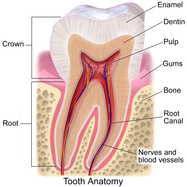
Your tooth has a nerve supply and a blood supply (called the dental pulp), much like any other organ or tissue of the body. If this is irritated by trauma, decay or any other means then an inflammatory response occurs inside your tooth.
If you get an inflammatory response on your skin for example the area will become red and swollen and your skin will stretch. As your tooth cannot stretch, pressure builds up inside the tooth which causes pain. Dental Abscess
An abscess is essentially a collection of pus (dead tissue and bacteria). If you get toothache due to inflammation inside your tooth, this inflammation eventually forces the blood supply to be cut off to the tooth and the dental pulp dies.
This dead tissue and its by products eventually leave out of the end (apex) of the tooth and form a gathering of pus beneath the tooth. This is why you may get a swelling, the tooth feels high or raised and it is sore to bite on.
Dental Implants are essentially titanium screw threaded components that are placed into your jaw bone to replace a root of a tooth. Occasionally they will be made out of other materials.
The implant, once placed, often requires some additional bone adding (a graft) around it in order to ensure its long term stability and an aesthetic result.
In order to access the bone where the implant is to be placed, once the area is numb (with local anaesthetic) the gum is cut and a flap of it is raised and held out of the way whilst the implant is placed into the bone.
What are veneers - Very thin layers of tooth coloured porcelain or tooth coloured filling material which are used to improve the appearance and/or function of a patients teeth. Dental veneers like veneers of any other kind usually just cover a layer on the visible surface of the tooth although they may overlap the edge of tooth and onto the back of tooth depending on the circumstances.
What materials are veneers made out of - they are made out of feldspathic porcelain usually which has a proven track record for veneers and can give an excellent lifelike appearance when done well. Alternatively they can be made out of high quality direct composite resin material. This is when they are made directly in your mouth as opposed to in a lab but these are very difficult to get looking as good as porcelain veneers unless your dentist is very experienced with this type of material.

The argument for the existence of the tooth fairy is a lot like the argument for the existence of Santa Claus. Our views change dramatically as we age.
As very young children, we are too young to understand what it is all about. we are learning the intricacies of walking and talking so an age old debate is far from our grasp at this stage. As we begin to become increasingly aware at the age of 3, we have all of our deciduous (baby/milk) teeth, and may start to hear about the tooth fairy from our parents and older siblings. We now begin to look forward to the day our first tooth falls out. It is a new feeling and a magical emotional time. We get excited about the idea if the tooth fairy however we are too young to appreciate what she he stands for. Who are they for?
Here we will look at the different types of dental plans that you can have and the main companies offering them in the UK, we are not affiliated with any companies and so will not recommend one over another but will give you the facts for you to make your own informed decision and hope we can help!
Root canal treatments seem to have more stigma attached to them than any other dental procedure. You will often hear people say "Oooh a root treatment, that's painful" or "I remember having a root canal done and it was excruciating".
This is not true! They really are not that bad and for those of you who really cannot tolerate the idea then you can always have some sedation to relieve your anxiety Video showing Root Canal Treatment ProcedureWhy Not Brushing Your Teeth Properly will Ruin Your Life1. Health - If you don't brush your teeth then you will get gum disease which can cause diabetes and halitosis (bad breath). You will get decayed teeth leading to constant toothache and jaw ache this can lead to life threatening cellulitis and death. You will get bleeding gums, problems when eating, the stigma of wearing dentures when still young and as a result decreased confidence leading to many more serious problems.
4. Income - Your overall income is affected by reduced career prospects as a result of reduced confidence among other reasons. Your income is also indirectly reduced by increased taxes as described above.
Oral B electric toothbrush heads can become quite costly if bought on the high-street but they do not have to be. We have looked at the different Oral B toothbrush heads as well as their direct competitors/imitation heads and compared them so you know what to get next time you're looking for an Oral B electric toothbrush head to replace your current dog eared one!
Generally amazon is your best bet as they will have the cheapest price on both Oral B electric toothbrush heads and imitation heads (unless you are buying hundreds from a wholesaler!) Here are our top picks and a direct comparison after our dentists used them on the same electric toothbrush: Who are the GDC (general dental council) and what do they do?
The GDC, general dental council are a council funded by the registration fees of dentists and other dental professionals who's aim is supposed to be to protect patients. There has been a lot in the press lately from the British dental association and other sources about whether they are actually doing their job properly and it has caused quite a rift between the council and dentists. The main issue in the latest news is that of reports showing that the GDC, based in Offices in London were very inefficient in the way they managed cases and as a result raised the registration fee for dentists from £576 a year to around £900 per year to make up for their shortcomings.
The GDC produce guidelines for dentists to follow as well as deal with complaints/fitness to practice proceedings from patients or dentists about dentists or other dentists. They advertise for patients to complain to them but often do not make patients aware that the best course of action is almost Always to contact your own dental practice directly. Often potential complaints and problems can be dealt with simply and easily just by talking to your dentist or practice manager about your concerns. The GDC are there for when a local resolution cannot be met and they will manage legal cases on patients behalf against dentists, usually for what is deemed negligence.
There are many reasons why you may feel unable to access your dentist or a dentist to attend to your dental needs but really there should be none. The following are the most common reasons we see and how we have found patients have dealt with them:
There are a number of reasons why there may be a breakdown in relationship between a patient and a dentist, these include:
1. Bad treatment experience with particular dentist
2. Felt rushed during previous appointments 3. Felt uncomfortable discussing options with dentist or pressured into accepting expensive treatment plans 4. Did not trust dentist for one reason or another 5. Put off by other areas of the practice, leading to a poor view of the practice even if got on well with dentist.
PART 1 - MANAGING ANXIETY
PART 3 - MANAGING RELATIONSHIP WITH DENTIST PART 4 - ACCESSING THE DENTIST
Welcome to part 2 of this overcoming barriers to dentistry section, here we will discuss the different factors regarding cost and fees for dental treatment and how you can manage these or be helped to manage these in order to make sure you can attend the dentist and have the treatment you want or need.
We will not go into how best to overcome other social factors such as working hours, picking up and dropping off children etc as this will be covered in part 4
PART 2 - MANAGING FEES/COSTS
PART 3 - MANAGING RELATIONSHIP WITH DENTIST PART 4 - ACCESSING THE DENTIST
Why Dentists take X Rays
|
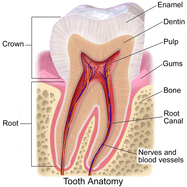

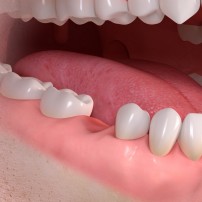
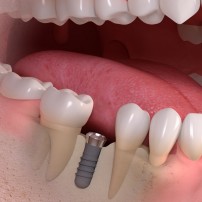


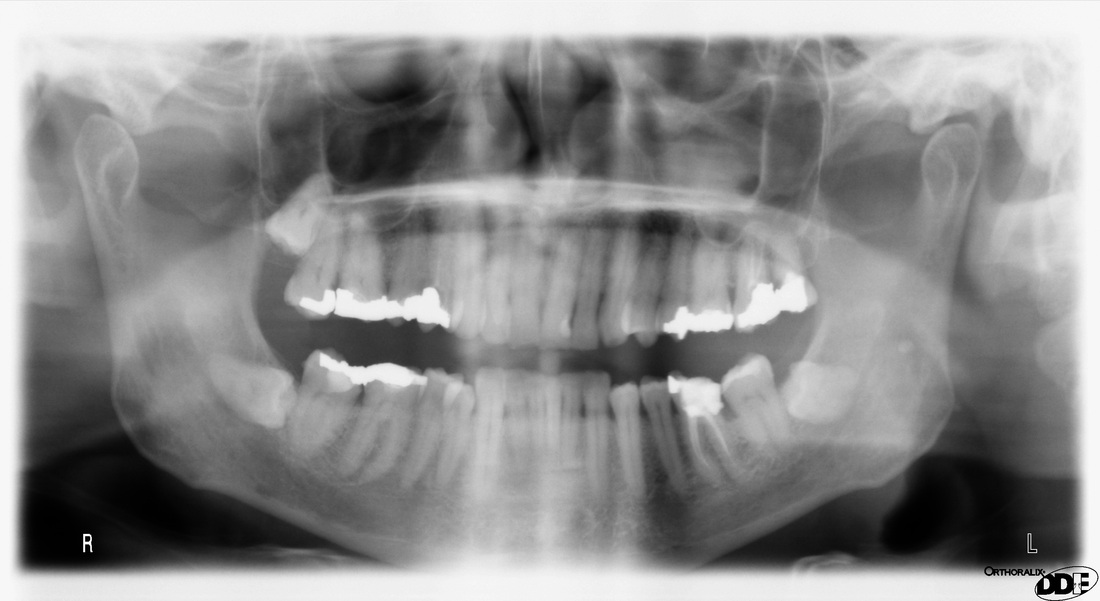

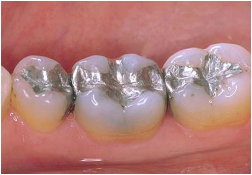
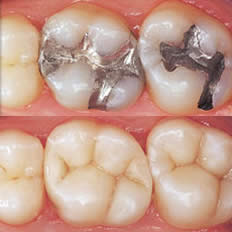
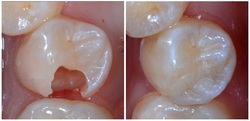
 RSS Feed
RSS Feed